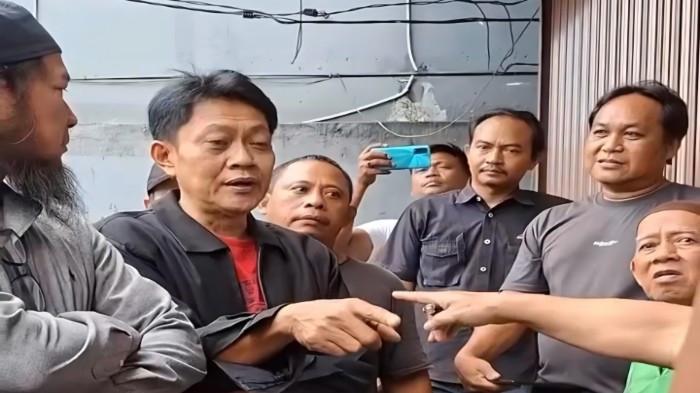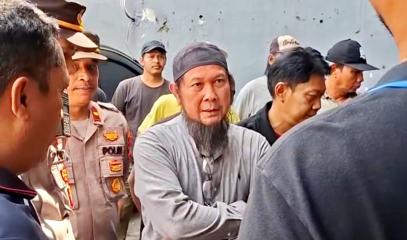Karawaci: Islamic radicals disrupt services at Bethel Indonesia Church
On two occasions, dozens of extremists interrupted Sunday prayers at a Protestant community. The attackers claimed that the shop-house did not have the necessary permits to be used as a house church. Controversy erupted online, with calls for freedom of worship. Once again, urban planning practices were used as a pretext to prevent Christians from praying.
Jakarta (AsiaNews) - A group of at least 20 self-styled Islamic fundamentalists stormed a shop-house (a building common in Southeast Asia, used for both commercial and residential purposes) and forcibly dispersed the faithful of the Bethel Indonesia Church (Gbi) in the middle of a religious service.
The incident dates back to 21 September but has only emerged in the last few hours. It took place in the suburb of Gerendeng Pulo, in the city of Karawaci, Tangerang Regency (Banten Province).
Local sources tell AsiaNews that this is not an isolated incident, but a further reminder of a social and institutional framework in which intolerance is ‘normalised’ and it is therefore even more urgent to address the issue of religious violence.
A video that has gone viral on the internet shows a group of Muslim residents of the area, linked to the radical and extremist wing, forcibly interrupting the Sunday celebrations of the GBI in Gerendeng Pulo, Karawaci, in the second incident in a few days.
A similar incident had already occurred on 14 September: the video shows a group of about 20 people shouting and threatening members of the Protestant community, who meet every week in a two-storey shop on Otista Street, in the sub-district of Gerendeng, which is used as a place of worship.
One person shouts that ‘you cannot hold [worship] activities here: Go worship somewhere else, but not here.’ A man in a black jacket, identified as the neighbourhood chief, threatened to revoke the identity cards of residents who authorised the house church.
However, according to GBI representatives, the congregation had already collected about 20 signatures of support and completed the necessary paperwork. Reverend Melki reported that it was ‘the second interruption’ and that the service ‘was delayed by almost an hour until the crowd dispersed.’
Meanwhile, the incident sparked widespread criticism online, with the majority of users condemning the assault and calling the ban on worship ‘unfounded.’ The incident sparked a political controversy with the Gerindra party calling into question the mayor and his deputy, while a city councillor turned to the police, but so far there have been no official statements or measures taken by the police on the matter.
This latest incident adds to a growing list of cases of religious intolerance in Indonesia, the world's most populous Muslim country: data from the Setara Institute show 260 incidents and 402 violations of religious freedom in 2024, while the National Commission on Violence Against Women recorded eight cases of intolerance in the first half of 2025 alone.
In many cases, behind attacks, violence and interruptions to worship lies the infamous Imb (Izin Mendirikan Bangunan), a procedure that regulates the construction of a church - Catholic or Protestant - which is often complicated and can take up to 5 or 10 years to obtain authorisation.
This is a sort of written resolution that allows a construction site to be opened and is issued by the local authorities; however, the matter becomes more complicated in the case of a Christian place of worship: the approval of a certain number of residents in the area and of the local interfaith dialogue group is required. Often, “reasons” arise that prompt officials to block projects, under pressure from extremist groups.
This latest incident is another blow to those who proudly uphold Pancasila (the founding principles of the state) and the nation's motto, “Bhinneka Tunggal Ika”, which affirms unity in diversity.
Even today, there are still too many cases of Christian (and other faith) believers and communities who, when they gather to pray, are subjected to persecution, harassment and even violence.
Whether the pretext is the Imb or something else, the result is that some citizens are deprived of their constitutional rights and become victims of mafias operating under the cloak of religion and in the silence - or with the connivance - of the authorities. Even with Prabowo Subianto, a leader with a background in the armed forces, as president, there is no certainty that religious freedom will be fully upheld.








.png)










